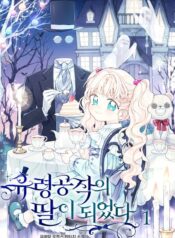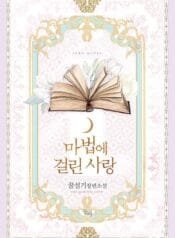Chapter 9: The Candle Wax and Resolve (5)
The priests and nuns of Archelio Monastery gathered in the cathedral. Father Edwin was about to announce the schedule for the prayer mass.
“Due to the critical condition of His Majesty the Emperor, we will be holding prayer masses twice a week at the royal palace starting next week,” Father Edwin said in a calm voice.
“Originally, Father Marco was supposed to attend the prayer mass, but considering his mobility issues, Sister Alicia, who has been granted the position of lector, will take his place.”
No sooner had Father Edwin finished speaking than someone raised their hand. It was none other than the seminarian Lucio.
“If someone is needed to take Father Marco’s place for the prayer mass, wouldn’t it be better to have a seminarian who has been granted the position of acolyte rather than a nun?”
Father Edwin’s eyebrows twitched at Lucio’s clear, earnest voice.
From a practical standpoint, Lucio was right. It made more sense to give the opportunity to a prospective priest, who would be granted priesthood upon completing his training, rather than to a mere nun who could only recite a few lines of scripture.
“We have been granted not only the position of lector but also that of acolyte. We would be much more helpful than Sister Alicia.”
As I headed to the laundry area, I wondered if I had been too harsh on him, causing him to block my path now. Or perhaps his intentions were genuinely sincere?
“Leaving the monastery during the training period is against the rules,” I said.
“This is for the emperor’s prayer mass. I’m sure the seminary will make an exception,” Lucio replied.
“…As a priest of this monastery, I do not approve,” Father Edwin said.
Despite Father Edwin’s predatory gaze, Lucio calmly responded.
“Father Edwin, if extra hands are needed, isn’t it the doctrine of the temple to take those with higher ranks first?”
“You must have forgotten, this isn’t the central temple…!”
Father Edwin raised his voice, momentarily provoked by Lucio’s words, but then he held back.
“Let’s do it this way. We will take the one who can recite the passages from the scripture used in the prayer mass. This is a fair method, so I believe neither of you will have any complaints.”
I had no idea what Father Edwin was thinking when he made that suggestion. The scriptures used in the prayer mass alone comprised six volumes, amounting to thousands of pages.
“I’m fine with it, but what about you, Sister Alicia?” Lucio asked, smiling brightly as if genuinely concerned about me. Could he have sensed the nervousness that was making my palms sweat?
“…I will follow Father Edwin’s decision,” I replied.
I couldn’t afford to squander this one and only opportunity. I gave Father Edwin a silent, questioning look, and he lifted his chin, looking down at Lucio with an arrogant gaze.
“When Dreiman’s son Benya was stricken with disease, his limbs rotted, and his body was covered with sores. He knelt at the feet of God and recited,” Father Edwin began.
I needed to speak before Lucio, but my lips felt as if they were sealed with plaster, refusing to move.
“It’s from the third chapter of Aribitrie,” Lucio confidently answered.
“Correct. It is from the third chapter of Aribitrie,” Father Edwin confirmed.
When Father Edwin acknowledged Lucio’s answer, my heart plummeted.
“Then recite the next passage,” Father Edwin instructed.
“Even the priests conducting the mass read from the scriptures. How could anyone memorize all of it? It seems you never intended to take a seminarian with you in the first place,” Lucio replied, his tone laced with subtle sarcasm. He was right; no elder priest could possibly memorize thousands of pages of scripture.
“Sister Alicia, you agree with me, don’t you?” Lucio asked, seeking my confirmation.
I lifted my trembling lips towards him and began to recite.
“Holy God, my child is suffering in pain. Please take my flesh and let new skin grow over Benya’s wounds,” I said.
It was a passage I had heard countless times during the prayer masses in my time as a Saint. My lips moved as if possessed, reciting the scripture.
“God said, ‘If you do so, your flesh will be trapped in eternity and suffer forever. Yet if you offer your flesh, I will personally grant your wish,'” I continued, the words echoing in my mind as vividly as if I were still in the emperor’s chambers.
The familiar passage resonated deeply within me, impossible to forget.
“Dreiman willingly offered his flesh and heart, and God left without a trace. When he returned home, Benya’s body was covered in new, smooth skin like silk.”
When I finished reciting the scripture and finally looked at Lucio, I saw a completely different expression from the one he had shown before.
His bloodshot sclera between his raised eyelids, and his lips were as cold as late winter frost.
“Seminarian Lucio, do you have anything more to say?”
Father Edwin looked down at Lucio arrogantly, brushing back his silver hair.
“Yes, I was rash.”
Lucio bowed his head and humbly admitted defeat. Despite his words, a bitter and sinister aftertaste remained on his lips.
***
During dinner, I was surrounded by the nuns, who chatted non-stop.
“Licia, you were amazing earlier. I felt that seminarian was belittling us nuns.”
“That’s right. We’re also members of the monastery and walking the path of clergy just like the priests. His words made me feel like our worth was being denied.”
The voice I raised was not only mine but also represented the nuns who sat quietly.
“Licia, we are so proud of you.”
Hearing that made my cheeks blush. How wonderful it is to be someone others can be proud of. My heart swelled with emotion.
Lucio never stepped into the dining hall until the end of dinner service. Perhaps his rigid pride was shattered, thinking that a mere nun had outshone a seminarian granted the position of acolyte.
I leaned against the railing on the second floor of the monastery, enjoying the night air. As I loosened the coif I had been wearing tightly, the cool night breeze brushed through my hair.
“Alicia.”
I turned at the soft call of my name.
“Lucio, have you had dinner?”
“No. I skipped it; I didn’t have an appetite today.”
I handed him the bread that was served for dinner. The nuns had generously given me extra lasagna, so I ended up not eating the bread and brought it along.
Lucio stared at the bread for a moment, then quietly shook his head.
“Thank you for thinking of me, but I really don’t have an appetite.”
“It’s still better to eat a little,” I insisted.
His wrist, thin as a twig, peeked out from the white sleeve of his cassock. Lucio, who had not yet reached full adulthood, looked so fragile that he seemed like he could collapse at any moment. When I gently pressed the bread into his hand, he finally accepted it.
“Alicia, do you hate me?” he asked.
“To be honest, I was taken aback,” I admitted.
At first, I couldn’t understand why he was trying to obstruct my path. What grudge could he possibly have against me?
“But everyone has their reasons, right? If I were in Lucio’s shoes and there were two seminarians who had been granted the position of acolyte, I would probably find it strange if suddenly a nun was chosen instead.”
“It’s not that, Alicia,” Lucio interrupted, suddenly pulling my hand.
I was startled by his unexpected action, and my heart raced as I looked into his eyes, searching for the reason behind his behavior.
“I was trying to protect you, Alicia.”
Protect? The word seemed out of place considering his actions in the cathedral. It would have made more sense if he had said he was standing up against an injustice as a seminarian.
“Do you know how Father Edwin looks at you?”
I couldn’t hide my surprise at the sudden mention of Father Edwin’s name.
“He doesn’t look at you as a priest should look at a nun. But since he is a priest who serves God, I won’t say more.”
“Are you saying you wanted to take my place at the prayer mass because of Father Edwin?”






